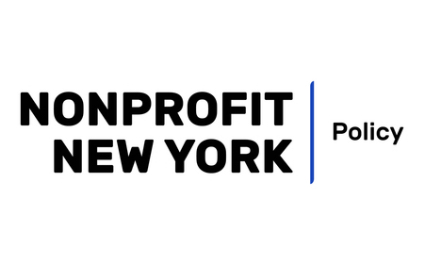Nonprofit New York [1], strongly supports H.R. 7011, the Pandemic Risk Insurance Act of 2020 (PRIA), which would create the Pandemic Risk Reinsurance Program, a system of shared public and private compensation for business interruption losses resulting from pandemics, including COVID-19, or public health emergencies.
Nonprofit business losses due to COVID-19
Nonprofits have experienced significant revenue losses, layoffs, and closures due to COVID-19, particularly nonprofits heavily reliant on revenue-generating events and fundraisers, nonprofits with fee-for-service contracts reimbursed for the number of people or units served, and community development corporations who generate revenue from rent [2]. Nonprofits in New York are not financially strong [3] and these losses could lead to significant closures and adverse consequences to the communities we serve.
Nonprofit insurance
Most nonprofits with general liability or commercial property insurance have very limited business interruption coverage [4]. Unlike for-profit entities, most nonprofits are not well-versed in insurance coverage negotiations and do not have weighty insurance brokers advocating for our interests. Insurance experts contend pandemics are uninsurable without a federally backstopped program. Accordingly, without a specific legislative intervention like PRIA, nonprofits are unlikely to obtain any business interruption coverage for COVID-19 related losses.
The nonprofit sector supports a federal solution to COVID-19 and future pandemics. The fragmented and inefficient approach the United States has taken to COVID-19 has been incredibly detrimental to our sector. We emphatically support a centralized solution, just like the risk of terrorism.
Contact: Chai Jindasurat, Policy Director, Nonprofit New York ([email protected])
Date: November 5, 2020
Appendix: PRIA explainer
The Pandemic Risk Insurance Act (PRIA) would be an important step in our prevention efforts against economic losses from pandemics by both requiring insurance companies to offer business interruption insurance policies that cover pandemics, and creating a Pandemic Risk Reinsurance Program to ensure that there is sufficient capacity to cover these losses and protect our economy in anticipation of a resurgence of COVID-19 and future pandemics. Like the Terrorism Risk Insurance Act (TRIA), the federal government would serve as a backstop to maintain marketplace stability and to share the burden alongside private industry.
A summary of the bill below:
- Participating insurers would have to provide business interruption insurance policies – including event cancellation – that would include pandemics
- Deductible for participating insurers would be equal to 5% of their direct earned premiums for all lines of P&C insurance in the preceding year
- Program trigger would be $250 million in aggregate industry losses following the declaration of a covered public health emergency and the program cap would be $750 billion
- The federal share of compensation would be 95% while the participating insurers would be responsible for the remaining 5%
- It would be a voluntary program for carriers and is widely supported by policyholders
- It does not rely on a pre-funded model (a concern of both business and insurance industry)
A section-by-section summary can be found here.
***
[1] Nonprofit New York is an association of 1,500 nonprofit organizations in the New York City area.
[2] According to a pulse poll that was sent out by Nonprofit New York, 85% of respondents canceling programs and/or events, 70% experiencing reduced revenue, and 64% reporting a disruption of services to clients and communities. Researchers from Candid ran estimations on how nonprofits would be affected by the pandemic in 20 possible scenarios and in their median scenario they estimated that 1,829 nonprofits in New York could close because of the pandemic. The Center for Civil Society Studies at Johns Hopkins University study estimated 1.64 million nonprofit workers lost their jobs in three months (Mar - May).
[3] SeaChange Capital Partners. (2016). Risk Management for Nonprofits.
[4] For those that do purchase the insurance, the coverage often does not extend to contingent business interruption, which is designed to cover business income loss resulting from loss, damage, or destruction of property owned by others, including: direct “suppliers” of goods or services to the insured and/or direct “receivers” of goods or services manufactured or provided by the insured. In addition, even if a claim for business interruption is related to COVID-19, insurers have both disputed whether the physical loss requirement has been met and have asserted the applicability of pandemic, infectious or contagious disease exclusions in their policies to deny coverage.
